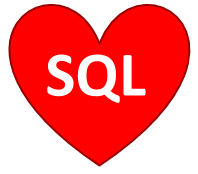 This morning I was asked a question about the job opportunities for a PL/SQL developer these days. I’m talking about someone with good SQL and PL/SQL skills, but limited, or no, knowledge of other development languages.
This morning I was asked a question about the job opportunities for a PL/SQL developer these days. I’m talking about someone with good SQL and PL/SQL skills, but limited, or no, knowledge of other development languages.
I think most people know I’m a big fan of PL/SQL. If you have good SQL skills and you know PL/SQL well, you can do pretty much anything with an Oracle database, including all types of web service and web development. Throw in some APEX skills and you can be super productive as a web developer against Oracle databases.
So back to the question, what are the job opportunities for a PL/SQL developer? In the UK at least, that’s not a great place to be right now. When I first started with Oracle technology it was not uncommon for companies to employ developers just to code PL/SQL. There are still jobs like that available, my employer has two PL/SQL contractors right now, but the market for a programmer with just PL/SQL is on the decline. Search for “programming language popularity” and you will see a number of indexes don’t include SQL and PL/SQL in the top 20 lists. Search for “enterprise programming language popularity” and you will see SQL and PL/SQL appear. There may be flaws in the way the information for these lists is gathered, but you get the message.
That’s not to say SQL and PL/SQL skills are not of value, just that those skills alone are no longer enough. They have to be part of a package that includes other development skills.
Most people I talk to work in organisations that use multiple database engines (Oracle, SQL Server, MySQL, several NoSQL engines), so having a person that can only do PL/SQL development means they are of limited use compared to someone that also knows Java, C# or Javascript to a high level. That is, development skills that span database engines.
In a similar way, my current employer won’t commit to APEX as a strategic development platform because it is just for Oracle databases. Using database links to other engines to allow you to continue using APEX against them is not strategic. 🙂 In the same way, we have a lot of PL/SQL right now, but in the future I can see this being of less importance compared to other skills that are multi-engine. Do I like this situation? No, but it seems to be where we are right now.
Of course, this could be a conversation about “Java/C#/Javascript as your only development skill”. Development in todays world requires multiple languages, each serving a different purpose. It could also be a database engine discussion. I can’t imagine ever working for a company again that doesn’t expect me to look after MySQL, SQL Server and other engines, as well as Oracle.
I hope this doesn’t come off as negative. I love SQL and PL/SQL and I would love to be able to tell you these skills alone would set you up for life, but that would be a lie. As a developer, you are forced to follow the market and the market says you need multiple development skills to survive. I hope you pick SQL and PL/SQL as part of your skill set, as they are still very important in enterprise companies, but in the current climate betting your whole development career on a single language is not a safe bet. 🙂
Cheers
Tim…
PS. Us old folks will cling on until the bitter end. 🙂
 I’ve been saying for some time I should do some more entry level content, but it’s been kind-of hard to motivate myself. I mostly write about things I’m learning or actively using, so going back and writing entry level content is not something that usually springs to mind.
I’ve been saying for some time I should do some more entry level content, but it’s been kind-of hard to motivate myself. I mostly write about things I’m learning or actively using, so going back and writing entry level content is not something that usually springs to mind.